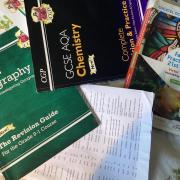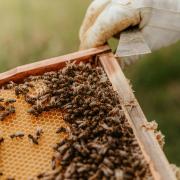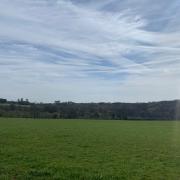
This year has been eventful. It’s hard to remember what happened in October, let alone the first half of the year. From Brexit to COVID-19, the news has been dominated by macabre headlines. Here is a month by month a recap of what happened in 2020.
January
The new decade did not have a slow start. The year commenced with the death of Qasem Soleimani. He was a major Iranian general, and his assassination by the USA caused outrage both within the USA and Iran. Many countries called for a de-escalation of tensions. Iran responded by launching missiles aimed at U.S. bases in Iraq. One of these hit Ukraine International Airlines Flight 752, a civilian passenger flight to Kyiv. All 176 people on board perished.
Earth was also on fire. At least 33 people died as Australia burned. The bushfires devastated at least 11 million hectares of land. Climate change activist Greta Thunberg spoke at the annual Davos summit in Switzerland, emphasising the need to emit zero emissions. Donald Trump also spoke at the gathering.
Prince Harry and Meghan Markle also announced they would be “stepping back” as senior members of the royal family. The media dubbed it as “Megxit”. The news was described as a shock to the Queen, who agreed to a “period of transition”. The couple now live in the United States, with their son, Archie.
2020 was also the year that Brexit finally took place. At 11PM on the 31st of January, the United Kingdom formerly left the European Union, 1317 days after the referendum. This started an 11 month transition period, that ended on the 31st of December 2020.
Crowds had gathered in Westminister to celebrate, a scene that would be rare in 2020.
January was also the month that officials in Wuhan began to notice a novel coronavirus. The cases were centred around the Huanan Seafood Wholesale Market, a wet market that has been closed since.
February
February was another busy month.
Donald Trump was acquitted of charges that could have led to his removal from office, following his impeachment in December, yet another turn to his eventful presidency.
However, COVID-19 was slowly spreading across the world. This was the month in which the death toll hit 910, surpassing the 2002-2004 SARS outbreak.
Li Wenliang was an early whistle-blower who shared early reports of a novel coronavirus similar to the 2003 SARS outbreak. He was admonished by the ruling Communist Party, including being “shamed” for “rumour mongering” on the state-controlled China Central Television. On the 8th of January, Li unwittingly contracted COVID-19 from a patient. By the 12th of January, he was in intensive care. Li died on the 7th of February. He was only 33.

In February, it was Storm Ciara’s turn to batter the United Kingdom. Gusts of wind with speeds up to 100 miles an hour were recorded. Thousands of homes and businesses were flooded as the storm brought heavy rainfall to the north.
This was also the month that the 92nd Academy Awards occurred. Parasite was the first non-English film to win the coveted Best Picture award. This year’s Oscars were viewed by 23.64 million viewers, the lowest since records began in 1974.
A cabinet reshuffle also took place; the first since December’s general election. This reshuffle led to the resignation of the Chancellor of the Exchequer, Sajid Javid. This was reportedly due to his opposition to the Prime Minister’s request that he sack all his advisers and replace them with ones selected by Number 10. Javid remarked, “no self-respecting minister would accept those terms”.
2020 is also a leap year. Many of us simply ignored the existence of the 29th of February. However, this was the date of the first confirmed COVID-19-related death in the United States, just a day after the first death of a UK citizen.
March
This was the month that changed the year.
On March 3rd, Boris Johnson launched the government’s Coronavirus Action Plan. The total number of cases in the UK was 51. The Prime Minister gave stark warnings; Schools may have to close and up to a fifth of the workforce might be off sick at its peak. Days later, on the 11th of March, the World Health Organisation officially declares COVID-19 to be a pandemic. Toilet roll and hand sanitiser became commodities.
On Friday 13th, the Premier League, May’s upcoming local elections and the London Marathon were all postponed. On the 17th, the Government began holding daily press conferences. The new Chancellor, Rishi Sunak also announced £300bn in loan guarantees, only 6 days after his budget. On the evening of the 20th of March, schools closed indefinitely. Public exams had also been cancelled.
However, all of this did not stop Cheltenham, which took place on the 13th of March. The winning horse was Al Blum Photo, for the second year in a row. It’s estimated that Cheltenham caused increased suffering and death.
On Monday the 23rd of March, just after 8PM, Boris Johnson announced the national lockdown. It would last until June, and change the shape of the United Kingdom.
The 26th of March marked the first "Clap for Carers". These continued every Thursday until the end of May, and brought communities outside together in a show of defiance.
April
This year, April was the sunniest on record with an average of 224.6 hours of sunshine recorded. Unfortunately, most of us were stuck indoors, watching Tiger King on Netflix. This included the Prime Minister, who suffering from COVID-19. On April 7th, he was moved to the Intensive Care Unit at St Thomas’ hospital. He would return to work on the 27th, days before the birth of his son, Wilfred.
This was also the month that the All England Lawn Tennis Club cancelled Wimbledon for the first time since the second World War. The entire grass-court season was abandoned.
Labour finally elected a new leader. Jeremy Corbyn was out and Keir Starmer was in. Many of Corbyn’s allies left the shadow cabinet. Rebecca Long-Bailey, his primary opponent, became shadow education secretary.
In the United States of America, Joe Biden became the Democrat’s presumptive nominee for the Presidency, as Senator Bernie Sanders suspended his campaign. Sanders, who also ran in 2016, won less states on Super Tuesday.
April was also the month in which the President suggested his ideas for preventing COVID-19. He suggested “injecting the body with disinfectant” and “bringing light inside the body” as potential cures for the virus.
May
May was a month of protest.
On the 25th, George Floyd was killed in Minnesota by Derek Chauvin, a police officer who pressed his knee to Floyd’s neck for over eight minutes. It was a clear act of racism, and triggered outrage around the world. The Black Lives Matter movement swept throughout society, raising awareness of issues such as racial discrimination.
May was also an important month for Elon Musk. SpaceX, of which he is CEO, launched the Crew Dragon Demo-2 to the International Space Station. This was the first time the United States had launched astronauts into space since the retirement of Space Shuttle Atlantis following STS-135 in 2011. Musk’s partner, Grimes gave birth to a son, whom they named “X AE A-XII”.
This was also the month that the general public became aware of Dominic Cumming’s visit to Barnard Castle to assess whether his eyesight was good enough for him to be able to drive. This caused outrage, as many had believed he had broken lockdown rules.
June
Worldwide protests racism continued throughout June. On the 7th of June, a statue of Edward Colston was pulled down and pushed into Bristol Harbour. One protester placed his knee on the statue’s neck, alluding to the death of George Floyd. Colston was a local merchant and former member of Parliament who died in 1721. He was involved in the Atlantic Slave Trade.
Donald Trump attempted to restore peace. At the height of the Black Lives Matter protests, he staged a photo op outside a church in Washington DC. This followed his proclamation “I am your President of law and order”. He held a Bible in his hands. When asked if it was his Bible, he replied “It is a Bible”. This incident was controversial as law enforcement used tear gas to clear protesters from the area, to provide a path for the President.
Rebecca Long Bailey was sacked by Keir Starmer for sending an anti-semetic Tweet, after writing that the practice of police officers in the United States kneeling on someone's neck was "learnt from seminars with Israeli secret services".
This was also the month that lockdown was eased; on the 23rd, Boris Johnson proclaimed that the extreme measures were over. Pubs, restaurants, and barbers were told they would be allowed to reopen. With hindsight, this does not seem like the best idea.
July
The foreign secretary, Dominic Raab, announced the suspension of the United Kingdom’s extradition treaty with Hong Kong. This follows the Prime Minister’s announcement of a pathway to British Citizenship for Hong Kong residents born under British Rule. These moves were provoked by the implementation of a controversial national security law.
British Airways also announced their retirement of the Boeing 747, brining forward moves planned for 2024. The 747 was launched in 1970, and is still being produced. The pandemic led to its demise, as there is no longer a need for large, inefficient passenger aircraft and production will end 2022.
Princess Beatrice married Edoardo Mapelli Mozzi at a small wedding in Windsor. The wedding was originally scheduled for the 29th of May but was postponed due to the Pandemic.
Argos also announced the end of its printed catalogue after almost fifty years.
August
On the 4th of August, a large amount of Ammonium Nitrate exploded at the port of Beirut, the capital city of Lebanon. 204 people lost their lives, and over 300,000 were made homeless. Over $15billion of damage took place. The incident is assumed to have been caused by the incompetence of officials.
August was also the month in which many students received their A Level and GCSE grades. Exams were cancelled on the 18th of March as schools were told they would close indefinitely. Teachers were asked to submit predicted grades to exam boards. On the 13th of August, A level students received their results. Many students had their predicted grades downgraded by a “mutant algorithm”. Many also called for the education secretary, Gavin Williamson, to resign. On the 17th of August, the government did a U-turn, announcing that all grades would be based on what teachers had submitted to exam boards. However, many students had already lost their university places.
Ed Davey was announced as the new leader of the Liberal Democrats, following Jo Swinson’s resignation in 2019 after she lost her seat. He had been the interim leader.
This year the UK had a record-breaking August heatwave, with temperatures reaching 34C.
September
September started with children going back to school. Many had done little work since the start of lockdown.
Work also began on HS2, after many years of legal disputes. It is planned that the project will cost £88.7 billion, and will be finished by 2033.
By Mid September, the number of COVID cases was rising. A “rule of six” was enacted to try and stop the spread.
On the 18th of September, legendary Supreme Court justice Ruth Bader Ginsburg died from cancer. She was a liberal icon. Her dying wish was to be replaced after the Presidential Election. The day after her funeral, Trump nominated Amy Coney Barret to take her place. This was controversial as Senate Republicans such as Mitch McConnell had refused to allow President Obama to appoint Merrick Garland in 2016, as it was an election year. Many Democrats accused Republicans of hypocrisy.
This was the month in which The New York Times published details of President Trump’s tax returns. These revealed that he paid only “$750” of federal income tax in 2016 and 2017. “He had paid no income taxes at all in 10 of the previous 15 years – largely because he reported losing much more money than he made.” Trump dismissed the report as being “totally fake news”. He repeated claims that he was under audit by the IRS, so could not reveal them himself.
This was also the month of the first of the United States’ presidential debates. The first debate between Joe Biden and Donald Trump took place on the 29th of September. The debate was a disaster. Trump calling for Biden to take a drug test before taking to the stage. Both Biden and Trump interrupted each other, which led to Biden infamously remarking “Will you shut up, man?”. Trump called for his supporters to vote twice to test safeguards against voter fraud, even though doing so is a felony.
October
October started with President Trump tweeting he had tested positive for COVID-19. This led to his first public appearance with a mask, and the cancellation of the second Presidential debate. The President was hospitalised at the Walter Reed National Military Medical Centre. His positive test was part of an outbreak at the White House; at least 48 personnel tested positive. Some Trump supporters have blamed the incident for his loss in the election.
In October, Lewis Hamilton equalled Michael Schumacher’s record of 91 Formula One Grand Prix wins. This followed his win at the Eifel Grand Prix. Schumacher has not been seen since a 2013 skiing accident that left him with brain damage.
The Labour Party suspended its former leader, Jeremy Corbyn, following his reaction to a report about anti-semitism within the Labour party.
On the 12th of October, Boris Johnson introduced the ‘Tier system’ to help counter the spread of COVID-19. This did not work, and on Halloween he introduced four week lockdown until the 3rd of December.
November
This was the month of the Presidential Election. More than 159 million Americans voted, the largest turnout in history. However, many voted by postal ballot prior to election day on the 3rd of November. The election was close and led to a long wait. The result was not clear until the 7th, when it became apparent that Kamala Harris would be the first female Vice-President in history. Trump began a legal challenge led by his personal lawyer, Rudy Giuliani. Giuliani was Mayor of New York from 1994 to 2001, and became a national hero following the 9/11 attacks. However, he has lost much of this respect. Trump’s legal campaign was marred by incompetence, including a press conference at Four Seasons Total Landscaping, not the prestigious Four Seasons Hotel. Trump has not yet conceded the election and has fuelled allegations of “dead people voting”.
The United Kingdom was back in lockdown. Chancellor Rishi Sunak extended the Government’s furlough scheme until the end of March 2021. Sir Phillip Green’s Arcadia Group entered administration, threatening 13,000 jobs. This led to the collapse of Debenhams in early December. This was also the month of Dominic Cumming’s resignation and theatrical departure from Downing Street, holding a cardboard box.
December
The month started with the country leaving lockdown, and the approval of the Pfizer vaccine. Following this, Margaret Keenan became the first person in the world to receive a COVID-19 jab.
However, the good news was short lived. On the 15th of December, Matt Hancock revealed that a new variant of the coronavirus had been identified and had begun to spread faster around the country. London went from “Tier 2” to “Tier 4” within a week. The Government cancelled plans for relieved COVID measures; many accused them of cancelling Christmas. A record 55,892 new infections were recorded in a single day, and schools were closed.
This year, Channel 4’s alternative Christmas message was a deep fake of the Queen. She performed a dance that was said to be “from Tiktok”. The video was clearly made by people who have never used Tiktok. This deepfake was a stark warning to the danger of technology in the spread of misinformation.
The year ended with the approval of a free trade agreement between the United Kingdom and the European Union. The United Kingdom stopped following EU rules at 23:00 GMT on the 31st of December. This came hours after it was announced the Prime Minister’s father was seeking French citizenship.
Congratulations on reading until the end. You have truly relived the horror of 2020. This year was marked by tragedy and horror. Whilst COVID-19 won't dissapear, 2021 will be a relief for everyone.

































